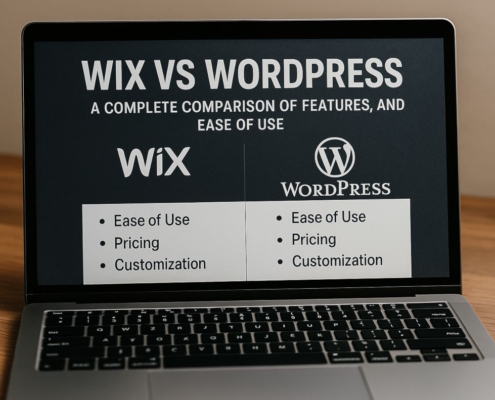What does contract work mean?
There are essentially two types of workers in the workforce: internal employees and contract employees. No matter how many hours a week they put in, internal employees are still considered employees and are eligible for benefits as such. Workers on contract are not officially regarded employees of their employer, but rather as independent contractors, each with their own set of advantages and disadvantages. Here we define “working on contract” and address some of the most frequently asked questions people have regarding this type of work.
Depending on your position and the terms of your agreement with the hiring organization, working on contract can imply several things. Workers on contract are often not officially employees of the business, but rather their own independent contractors. In its place, the business often employs freelancers for shorter periods of time to carry out certain tasks. A contract job could be as short as one day or one project or as long as several months or even years.
Who does contract work?
Contract work can be for almost any kind of job. There are a number of distinct advantages for businesses that hire from inside, as opposed to using contract workers. Companies typically have some leeway in deciding whether to use contract workers or internal resources.
The following are examples of industries and jobs that often use contract workers:
- Computer science, IT, and related disciplines
- Financial and accounting tasks
- Customer support
- Project management for software
- Medical treatment
- Managing projects
- Analysis and research
- Writing and editing
- Training and education
Is there anything good about working on contract?
Workers and employers alike can reap the benefits of contract workers. Some of the main advantages of working on contract are as follows:
- Ability to adapt: A contractor’s schedule is more flexible than that of an employee in a typical employment since, in essence, they are self-employed.
- Moving around: As a contract worker, you might be able to work from home if your job allows it.
- Advancement: Taking on a range of contract jobs allows you to hone your skills in a targeted and efficient manner.
- Networking: Taking on multiple contract jobs instead of one corporate employment is a great way to increase your professional network.
- Fresh experiences: Since most contract jobs are short-term, you’ll keep getting to try new things as you go from one project to another.
- Evaluation: A subset of businesses utilize their contractor pool to fill internal positions. You may be able to negotiate a more permanent, full-time employment with your current employer if you show signs of enjoying your work there.
- Deductions for taxes: Independent contractors are typically seen as self-employed by the Internal Revenue Service. Unlike an internal employee, you can take advantage of tax deductions and business tax write-offs when you’re your own boss.
When do contract workers get their paychecks?
Compensation for contract workers varies by industry and employer. Some occupations, like freelance editing, pay a flat rate for all tasks done, while others, like project management, pay a set amount regardless of how many tasks are involved. Although some may give paper checks at regular intervals, most organizations pay contract staff through direct deposit on a regular basis during the project.
Contract workers must submit their own tax returns because they are considered independent contractors. They may rest assured that the company they’re working for will pay them in full, without any deductions for taxes. The employee under contract is responsible for handling their own taxes.
How much tax do contract workers have to pay?
Independent contractors must handle all employment taxes, including income taxes, on their own. The majority of contract workers are required to file a Form 1099 upon hiring. Forms 1099 do not deduct any income for taxes, in contrast to the W-4 forms that internal employees are required to fill out upon hiring.
The Internal Revenue Service suggests that, instead of paying all of their taxes at once at the end of the year, 1099 workers should make quarterly payments toward their estimated yearly tax liability. In addition, workers who are subject to the 1099 tax code are required to pay a self-employment tax that funds government programs like Medicare and Social Security. For help with your taxes, it’s important to contact both your local tax office and the company that hired you, since the wages and taxes for each contract employment can vary.
How can one find contract work?
There are a number of ways to find contract work, and most of them work like searching for a regular job. Here are a few of the most effective methods for locating contract work:
- Staffing firms: Staffing agencies, or temporary agency, are businesses that help people find short-term jobs. There are both temporary and permanent employment available.
- Employment portals: If you’re looking for contract employment, you can use a standard online job board like Indeed to do a broad search or use the advanced search filter to specifically target contract jobs.
- Gig sites: Contract workers can join the gig economy through a number of online platforms. Many of these sites categorize jobs according to their nature, allowing you to narrow your search to certain types of contract work such as copywriting, errand running, or anything else you desire.
Which type of work experience is more appealing to hiring managers: contract or internal?
Employers used to give preference to applicants who had steady, long-term employment with just one or two companies. These days, it’s not uncommon for workers to switch jobs multiple times throughout their careers.
In fields where contract work is becoming more frequent, such as accounting, writing, and project management, it is not uncommon to list contract employment with many businesses. Give a brief but detailed account of the results you got and the abilities you honed while on contract if you want to impress a hiring manager.
For what reasons do businesses use contract workers?
Several factors influence a company’s decision to use contract workers. These are among the most common:
- Flexibility: Companies can keep their staffing options open by hiring temporary workers instead of full-time employees.
- Pay: Unlike with full-time employees, contract workers are not required by law to receive benefits such as health insurance or paid vacation time from their employers.
- Provide timely support: Contract workers can quickly take on a project that’s too much for internal workers. They can stay for the length of the assignment and then leave for other opportunities when the team finishes its work.































